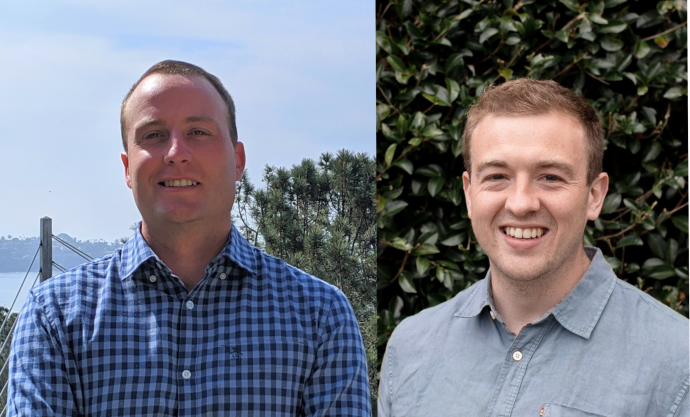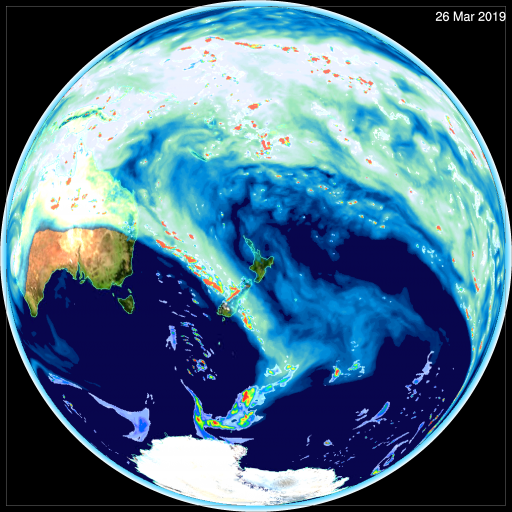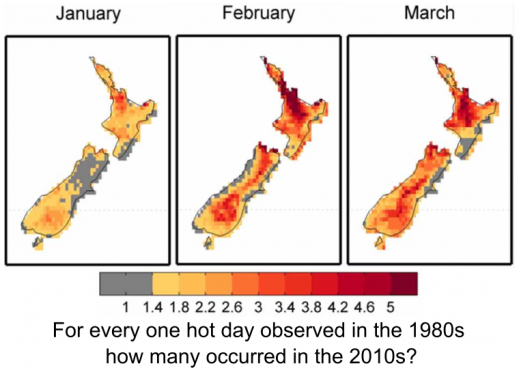Warmer air means more water: Aotearoa’s weather extremes in a warming world

Dr Peter Gibson from Taihoro Nukurangi the National Institute of Water and Atmospheric Research (NIWA) and Dr Luke Harrington from Te Whare Wānanga o Waikato the University of Waikato have both received Marsden Fund grants to improve our understanding of extreme weather events in Aotearoa New Zealand. They will be investigating how climate change could increase the number, magnitude and persistence of ‘atmospheric rivers’ in our skies, and supercharge warming of our land
Published on 2 Whiringa-ā-rangi November 2023
Climate change is already impacting Aotearoa. Predicting the severity of future climate events is crucial to prepare for their impacts, but many global climate models lack the spatial resolution required to do this at national and regional scales. These interrelated Marsden grants aim to change this by developing high-resolution models that better predict anticipated weather extremes here in Aotearoa.
Atmospheric rivers are concentrated corridors of water vapour transported through the lower atmosphere that can cause devastating flooding, as experienced in Auckland in January 2023. Modelling suggests that atmospheric rivers are expected to increase substantially over certain global “hotspots”, the greatest of which spans a large area of the Southern Ocean centered around Aotearoa. Dr Gibson’s Marsden Fund Fast-Start grant will examine how well these global models really capture the expected changes over Aotearoa, since complex topography is a major influence on the path and duration of atmospheric rivers. Dr Gibson and his international team will work to understand the historical trends in atmospheric rivers across Aotearoa and the specific factors underlying the Southern Ocean hotspot, then use high-resolution models to assess whether our local conditions could amplify these factors even more.

An example of an extreme atmospheric river impacting New Zealand in high-resolution climate model simulations produced at NIWA. White shading shows elevated atmospheric water vapour and red shading shows extreme rainfall (image: supplied by Dr Gibson)
Another prediction regarding climate change is related to the degree of summertime warming over land. The Intergovernmental Panel on Climate Change (IPCC) recently concluded that Aotearoa is one of the few populated regions around the world where summertime warming is expected to increase in line with global average temperatures, but not faster. However, local data shows that the frequency of extreme heat events in many parts of Aotearoa are indeed occurring faster than expected. Dr Luke Harrington and his team, which includes Dr Gibson, suspect that land aridification is to blame. Soil moisture evaporation uses up a lot of energy, so when soils dry out increasingly early each summer, there is more energy available to heat the atmosphere. With his Marsden Fund Standard grant, Dr Harrington will use a network of soil moisture and climate observations to develop new models that can quantify land-atmosphere feedbacks affecting island nations like Aotearoa at scales smaller than previously thought possible.

The frequency of unusually hot days increased significantly in Aotearoa between the 1980s and 2010s (image: supplied by Dr Harrington)
The effects of climate change on our water, air and land are inextricably entwined. Hotter air promotes evaporation of water from our soils, creating droughts; but the water vapour concentrated in the atmosphere can then be released elsewhere in floods. A holistic understanding of these processes, and how they manifest specifically in Aotearoa, will be essential as we plan for our future in a warming world.
